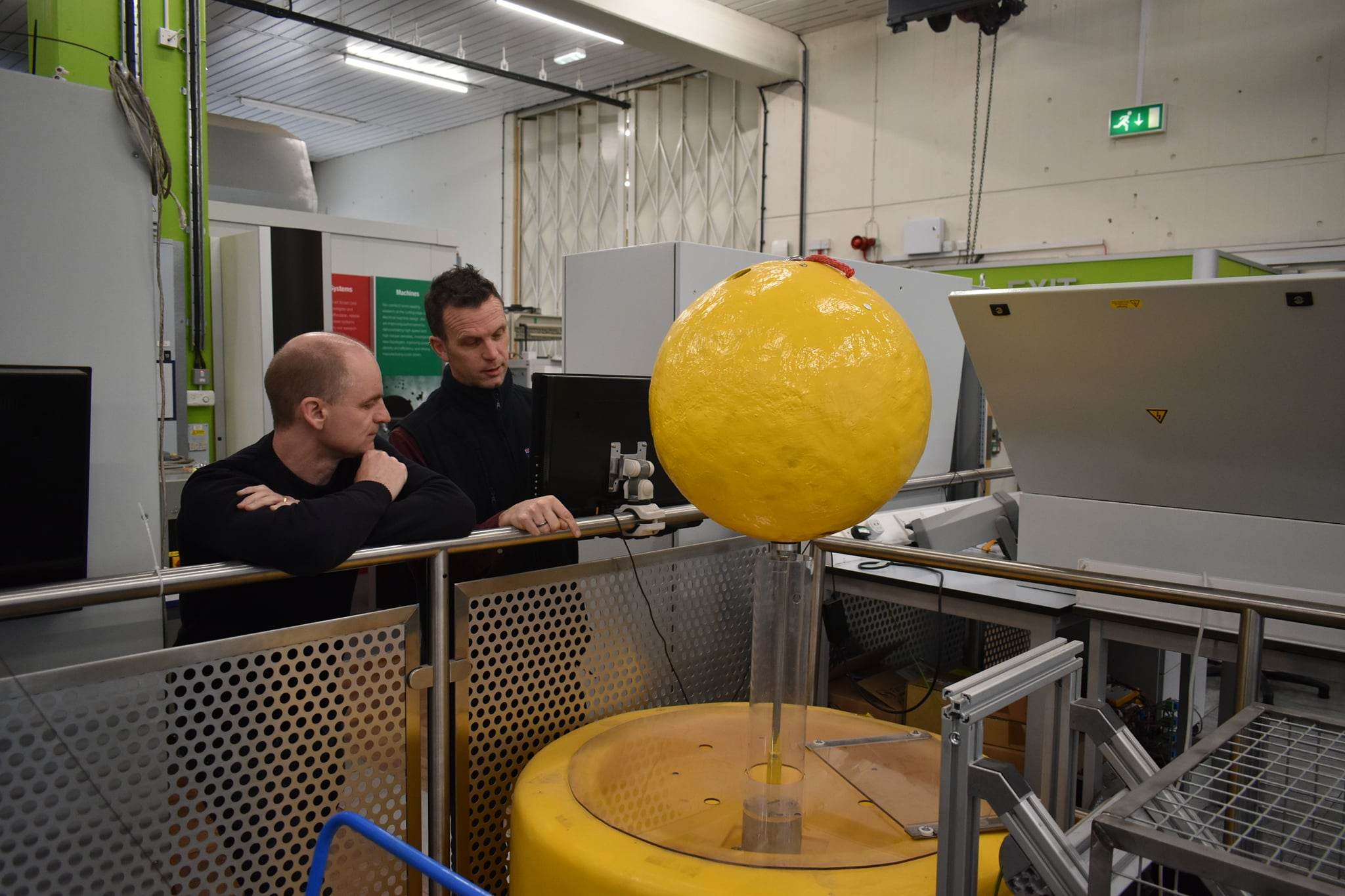Plans to turn wave motion into a source of renewable energy are underway as Newcastle University looks to install a prototype Wave Energy Converter (WEC) in the North Sea.
The MU-EDRIVE project is part of eight projects funded by the Engineering and Physical Sciences Research Council (EPSRC), part of UK Research and Innovation (UKRI), to build on the UK’s leading role in marine wave energy.
Wave energy is a concentrated form of solar energy. The sun heats land which results in hot air rising and causing wind, as the wind blows across the sea surface, it creates the oscillating up-down movement which can be used to generate electricity.
Led by Newcastle University’s Dr Nick Baker, MU-EDRIVE is a collaboration between Dr Serkan Turkman and Professor Jeff Neasham at Newcastle University and Professor Markus Mueller from the University of Edinburgh. It follows the successful collaboration between Edinburgh and Newcastle on the MEC-EDRIVE project funded by EPSRC as part of a previous wave energy funding call.
MU-EDRIVE aims to demonstrate the marinisation and upscaling of All Electric Drive Trains for wave energy converters. The Newcastle team will install a generator and power converter to a buoy mounted 3km off the Northumberland coast at Blyth in Spring 2024 for a 12-month period.
Once installed, the prototype WEC will provide vital operational data while testing the newest corrosion and anti-fouling technologies which will progress the understanding of the robustness of WECs in situ. The Edinburgh team will design, build and test a magnetic gear in partnership with Mocean Energy to demonstrate upscaling of electrical power take off systems.
The project will also show how marinisation and magnetic gearing technology can be scaled up to larger power levels and integrated more fully into wave energy converters.

Dr Nick Baker, Reader in Emerging Electrical Machines and Senior Lecturer at Newcastle University, commented:
“With regards to achieving the ambitious goal of net zero by 2050, it is essential to look at the energy system as a whole. Wave energy originates from solar energy as the sun heats the land, the land heats the air to create wind and wind creates waves. Wave energy can therefore be considered as ‘energy dense’ and could be a significant factor in moving away from traditional energy sources.
The upscaling aim of the MU-EDRIVE project will help to reduce costs of energy production as devices get larger, making the energy both easier and more affordable for access and usage. It’s hard to know what a wave energy device will look like in 10 years’ time. Thinking back to 10 years ago, offshore wind turbine technologies were in their infancy – this could be the same for wave energy now.”
Recent government recognition has led to a surge in skills and advanced technology across Power Electronics Machines and Drives (PEMD) sectors, the natural pathway is to apply these skills to the marine energy sector. Knowledge from the electrification of the automotive industry, such as developing motors and generators, could easily transfer into the marine energy market.
This cross-sector collaboration is something Driving the Electric Revolution Industrialisation Centres (DER-IC) strives to support, through its partnership between over 30 universities and research and technologies organisations, of which Newcastle University is the lead partner. The MU-EDRIVE project is one of the many projects using the organisational expertise of the DER-IC network.
